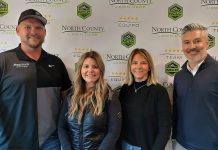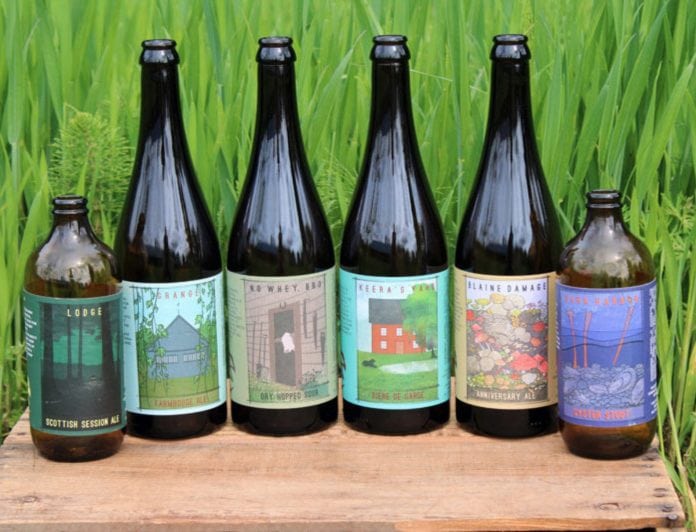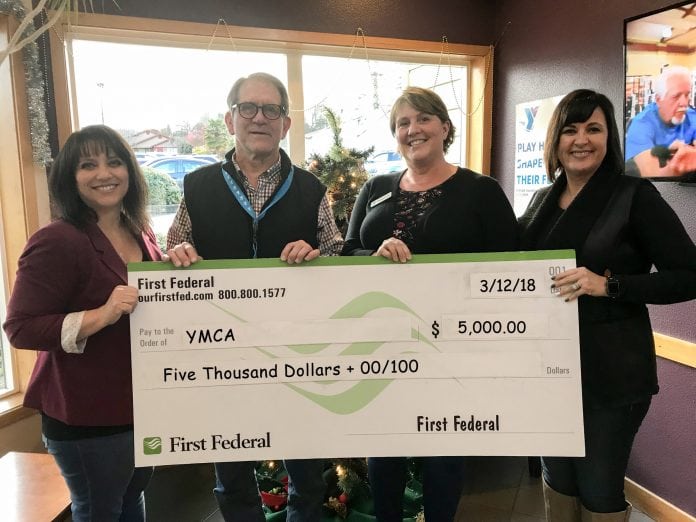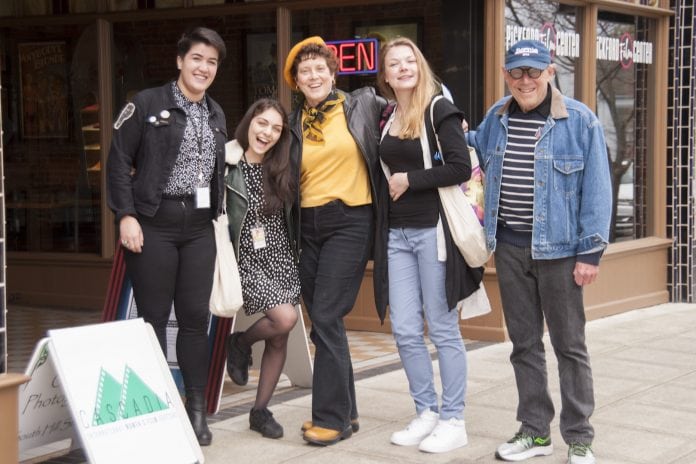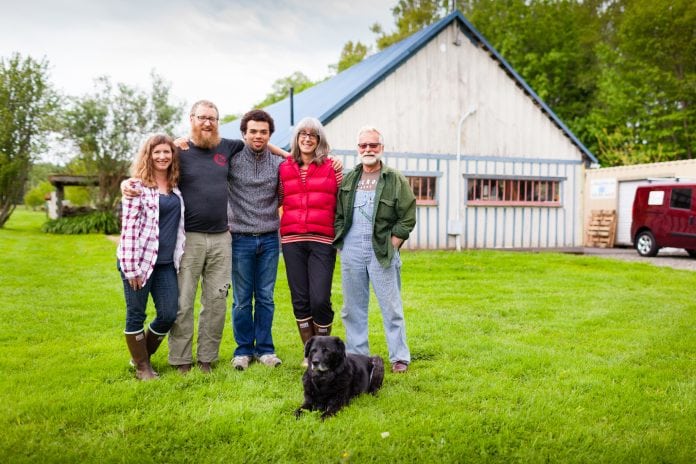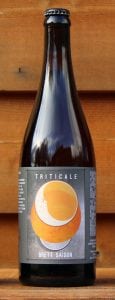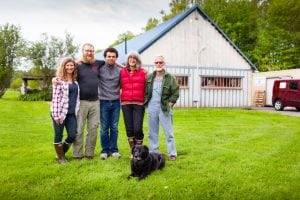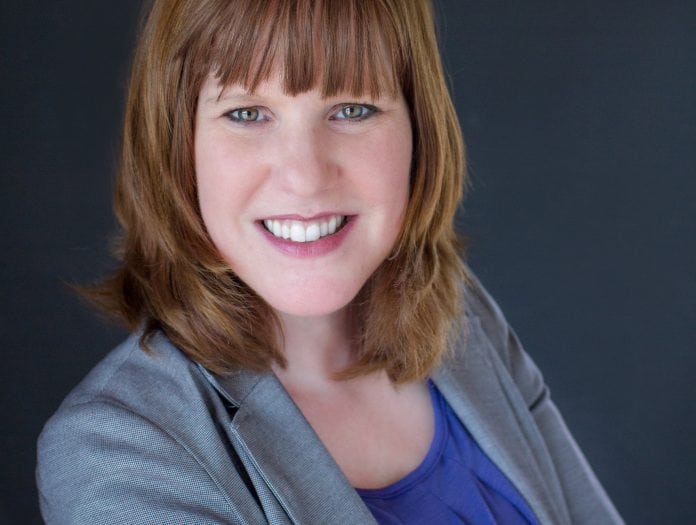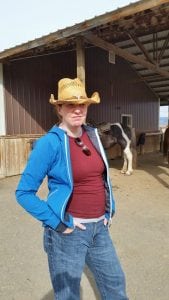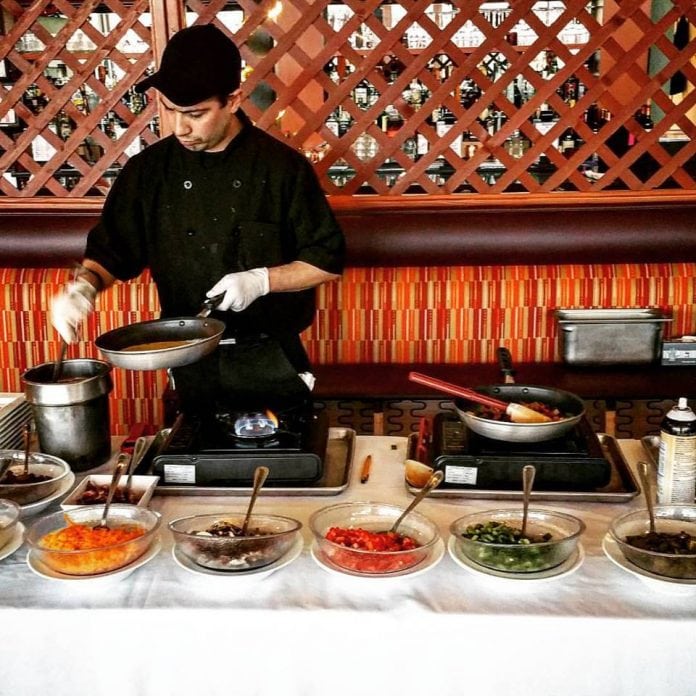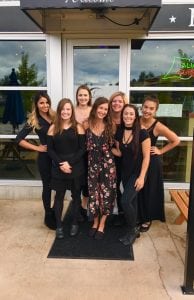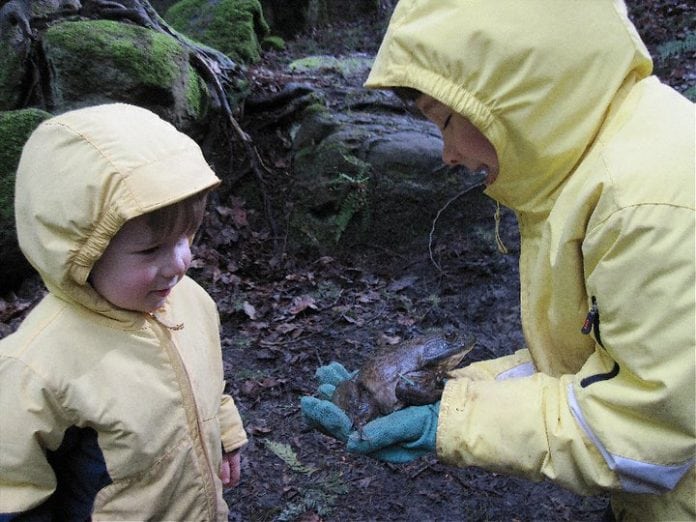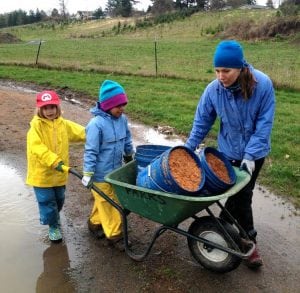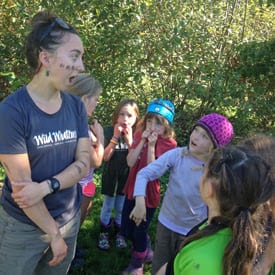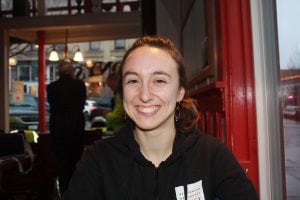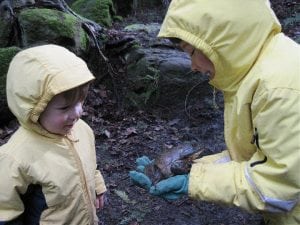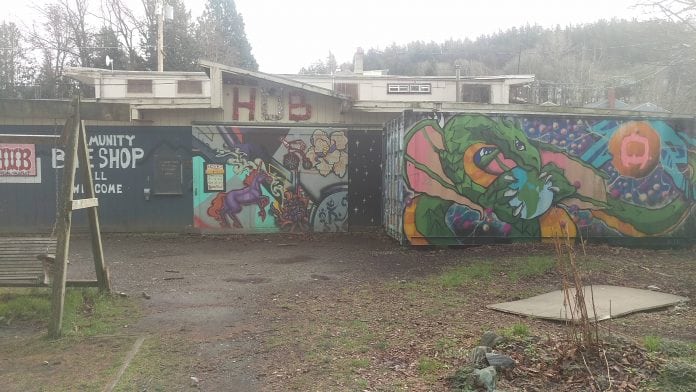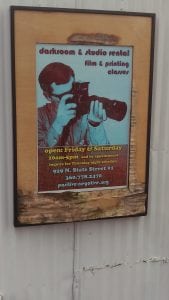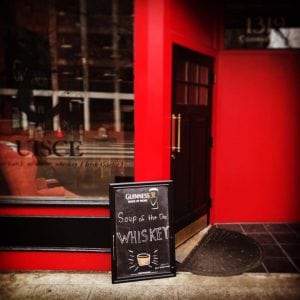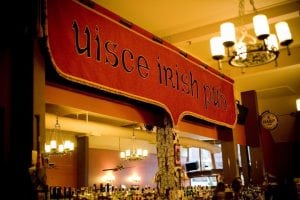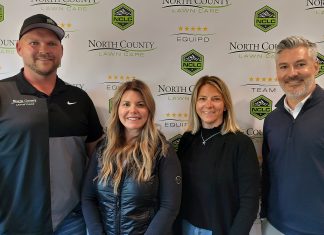When faced with our region’s plethora of beer, sometimes it’s what’s on the outside that draws us to our final choice. For every uniquely adorned can or bottle, there’s an artist whose work aims to lure us in and perhaps give a taste of what’s inside. For Blaine-based micro-brewery Atwood Ales, this artist is Erin Ramsay.
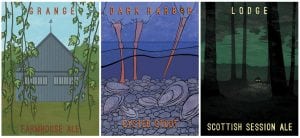
Ramsay has been involved with Atwood Ales from the beginning. As a close friend of the founders, she was interested in doing their artwork. “We were just chatting one day when they were starting up and I said, ‘I’d love to do your labels,’ not thinking they’d take me up on it,” she recalls. “But they were pretty open to it and I did three labels for them to start.”
She began with designs for Atwood Ales’ Dark Harbor, an intriguing Oyster Stout; Lodge, a Scottish Session Ale; and Grange, Atwood’s Farmhouse Ale. Now, 16 labels later, she has a lot of experience making Atwood Ales shine.

Ramsay studied drawing and sculpture at Mount Allison University in Sackville, New Brunswick. She ultimately finished her studies with a master’s degree in landscape architecture from UBC in 2014. She now works as a designer in Vancouver.
With her background in landscape design and love for Northwest aesthetics, Ramsay draws much of her design inspiration from the plants, colors and culture of the region. “I want the labels to have a Pacific Northwest feel to them,” she says. “With the Lodge Ale, I was even kind of imagining a ‘Twin Peaks-y’ theme. I try to use lots of textures to make the labels rustic and reminiscent of the farmhouse style, but also make the subject matter on the label a little bit quirky.”
Her colors and lines give the labels a vintage paper look, but with natural themes that support the style of the brand. Atwood Ales uses ingredients from their family farm in the production of their beers and Ramsay often showcases that fact in her designs. “I really like the idea of using elements of the farm, and of the Bellingham to Blaine area,” she says. “For Grange, their Farmhouse Ale, I included their barn and signature weather vane in the design.”

Ramsay even created a likeness of a certain farm visitor for Atwood’s Raccoon Bacchanal, a sour grape Saison. A group of raccoons is known for descending on the farm’s grape vines before harvest. Every year they do their best to polish off the crop. “We all have a good sense of humor,” Ramsay says. “The labels are not necessarily boring pastoral scenes – they have a little edge to them.”
Around the time Ramsay started designing labels for Atwood Ales, she began to experiment with bringing her drawings to life on her tablet, which has now become an integral part of her process.
“I had focused a lot on hand drawing in both my undergrad and in the landscape architecture program,” she says. “I generally start the labels as sketches and hand drawings, and then will go in on the tablet and experiment with adding textures and brightening things up.” Many of Ramsay’s designs evolve from her sketches paired with tasting notes from the beers and input from Atwood’s founders.
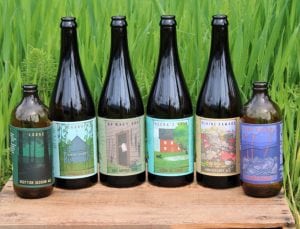
The micro-brew scene in Bellingham and around the Pacific Northwest is particularly vibrant. With so many choices, labels can set one apart. “One of the bigger challenges is making things that stand out when you have such a limited space on the side of a bottle,” Ramsay says. “It’s definitely a consideration when I’m putting it together. People who wander by the shelf should be drawn in, in some way, because there’s so much cool label art out there. I just wanted to have something that’s really dynamic.”
Seeing one’s artwork out in the world on a shelf is different than experiencing it in a traditional setting, like a gallery. Ramsay’s work is scattered around the northwest from stores to restaurants, to individual homes. “It’s really exciting to see my work out there,” she says. “Whenever we come to Bellingham, we’ll try to go to Elizabeth Station and purchase a bottle of their beer and make it a little occasion. It’s fun!”
Partnering with Atwood Ales has helped Ramsay reconnect with her fine art background and inspired her to continue with design work for other companies. “It’s been awhile since I’ve produced a body of artwork,” she says. “So it’s been a nice creative outlet, being able to do these labels. I’ve really enjoyed the process and I’m hoping to branch out and do more work like this in the future.”
To find Atwood Ales with Erin Ramsay’s remarkable art, visit their website.
Sponsored




















